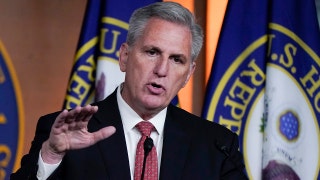Former WHO official says coronavirus could burn itself out before a vaccine is delivered
Professor Karol Sikora, CMO of Rutherford Health, on the three factors that end pandemics.
Dr. Karol Sikora, an oncologist and former chief of the World Health Organization's Cancer Program, told "The Ingraham Angle" Tuesday that locations that have lifted coronavirus-induced restrictions on economic and other activities are not seeing the feared spike in case rates.
"It strikes me, as you look at all of the data all around the world where people have come out of lockdowns, things are actually going along quite nicely on the whole, and it's strange," he said. "it's as though something has changed, and none of us can explain why.
"We need to make a vaccine, of course," Sikora added. "We need ... to try to get one. Let's hope that we don't need to wait until ... 60 percent of the community [are infected] because that could certainly take until next year."
Sikora, the chief medical director at U.K.-based Rutherford Health, went on to suggest that the "fear factor" surrounding the virus has prevented people from making themselves available for crucial screenings and other procedures, putting them at greater risk.
"There are... three factors that end a pandemic," he said. "The first, our behavior ... how humanity reacts to it: social distancing, avoiding crowds, that sort of thing, the very fear [of] this virus changes our behavior pattern.
"The second thing is the virus itself: how it deals with the fact that [there are] increasing immunities out there in its host. And it's changing; the summer weather has come to Europe and North America, and things are moving on.
"The third thing, of course, is what actually happens in terms of the fear factor and how we go into the autumn and [if we] see another wave," Sikora added. "I've heard all of the doom-laden theories. I'm an oncologist, I can't treat cancer patients properly because they're not coming forward for diagnostic service at the moment, so I am incentivized to get things moving."
CLICK HERE FOR COMPLETE CORONAVIRUS COVERAGE
Sikora also questioned the prevailing view that the virus will almost certainly return with a vengeance sometime in the future, noting that past outbreaks dating back to Biblical times have been wound down by one "immune mechanism" or another.
"Every pandemic, from the plagues in Venice, from the plague in Egypt way back in the times of Christ, we've seen them just peter out and we don't understand this petering out. Despite the very sophisticated computer mathematical models we've seen, we just don't know what is going to happen," he said.
"But I need to be optimistic, otherwise more people will die from cancer than have died from COVID."










































